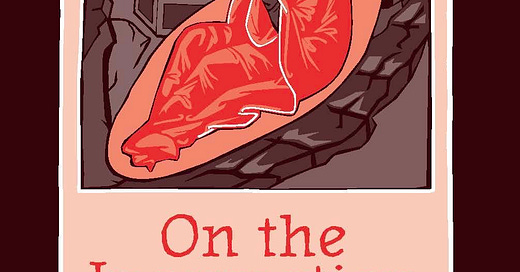If you are looking for the beginning of the study for Athanasius’ On The Incarnation then you can go HERE for a brief introduction. At the bottom of the introduction you will find the links to each section of the study guide. If you would like to see the growing list of book studies available for free on this site you can go HERE. Enjoy!
Virtues/Vices/Great Ideas: (Find them in the Text)
Appearance vs. Reality, Love, Humility, Creation, Death, Mortality vs. Immortality
Grammar Questions: (The Information of the Text)
What previous work (writing) did Athanasius refer to which preceded this present book?
What did Athanasius say “the Jews slander and the Greeks mock?”
What did Athanasius say was necessary for him “to speak about” before he discussed the work of Christ’s incarnation?
What did Athanasius say the Epicureans taught about the origin of the universe?
What did Athanaisus say Plato taught about the origin of the universe?
What did “heretics fabricate” concerning the beginning of the world?
What did Athanasius say was “the inspired teaching” (i.e. the biblical teaching) about the origins of the universe?
According to Athanasius, what unique qualities did God grant to humankind?
When “God created the human being” what did he “will” should be the case for them?
According to Athanasius, how were humans supposed to escape “their natural state” of mortality and gain immortality?
What was happening to “the work made by God” because of human sin?
Why, according to Athanasius, was “repentance” insufficient to fix the problem of sin in mankind?
What was the only solution to the problem of mankind’s sin?
What analogy did Athanasius make in regard to “the incorruptible Son of God” taking to himself a human body?
Logic Questions: (Interpreting, Comparing/Contrasting, Reasoning)
Why did Athanasius think it was particularly fitting that the Son of God be the one to save creation?
What did Athanasius mean by saying that we should “not think that the Savior has worn a body as a consequence of nature?”
What three truths about creation are contrasted against Epicureanism, Platonism, and the heresy mentioned?
Why would Athanasius claim that “evil is non-being?” What does he mean by this and how did he come to that conclusion?
What is meant by saying that God created humanity to be “an image of his own eternity?”
How might we succinctly state the dilemma that God was faced with because of mankind’s sin?
What can be inferred about the nature and character of God from the fact that this was a dilemma for him at all?
How was the incarnation of Christ the only sufficient solution to the divine dilemma concerning man’s sin?
Rhetoric Questions: (The Analysis of Ideas in the Text)
How do differing perspectives of the origin of the universe affect our daily life? What are the implications for meaning and purpose in life if Epicureanism is correct versus Platonism or Christianity?
Theological Analysis: (Sola Scriptura)
Read John 1:1-18. How does this passage address the matter of why the Son was the ideal one to “recreate” humanity and save us?
Read Philippians 2:1-11. What important aspects of the incarnation are emphasized by this passage?



